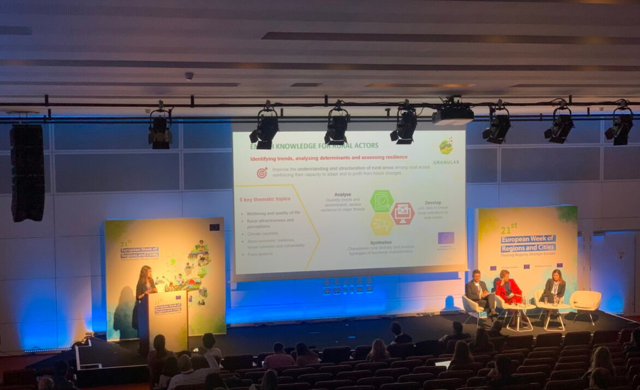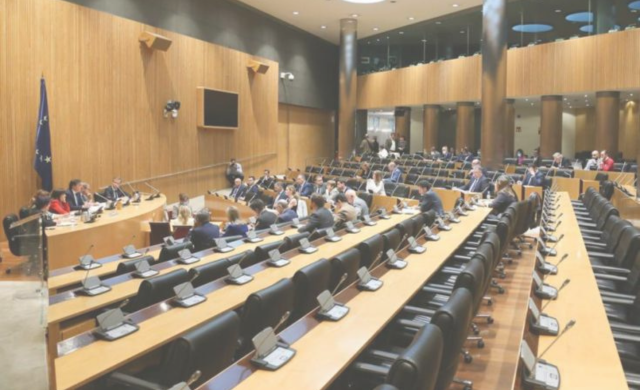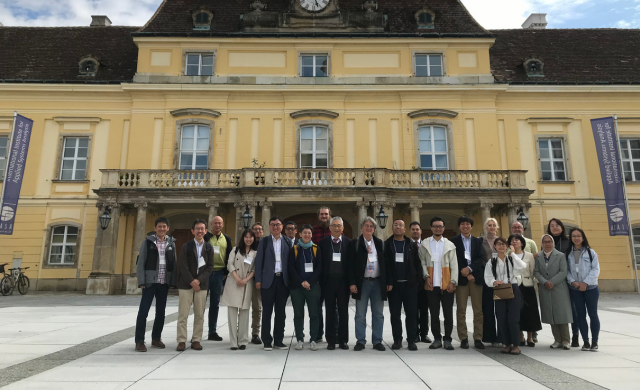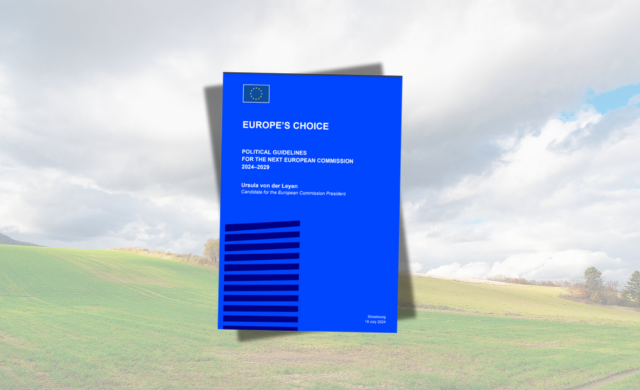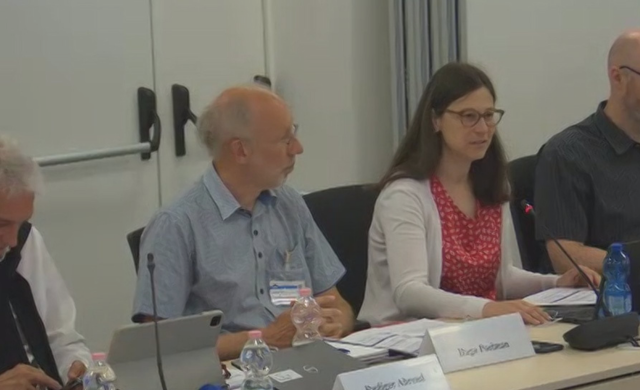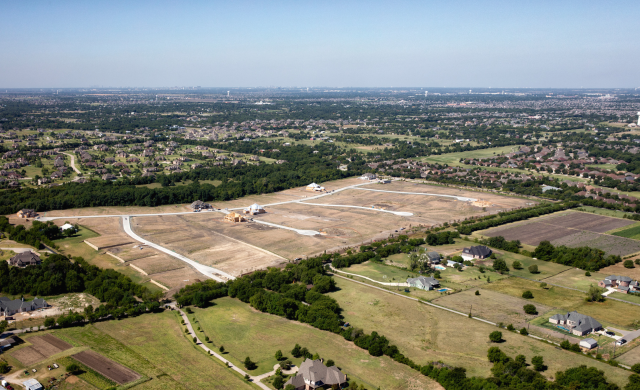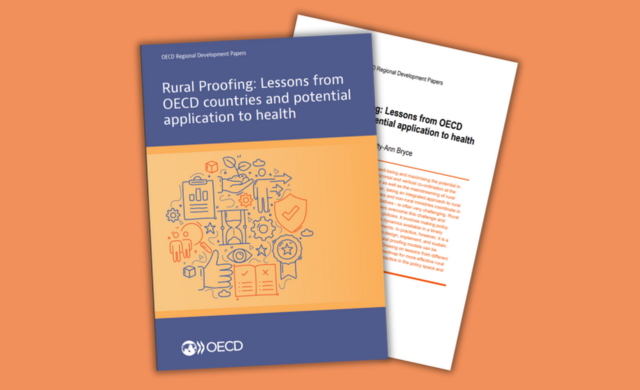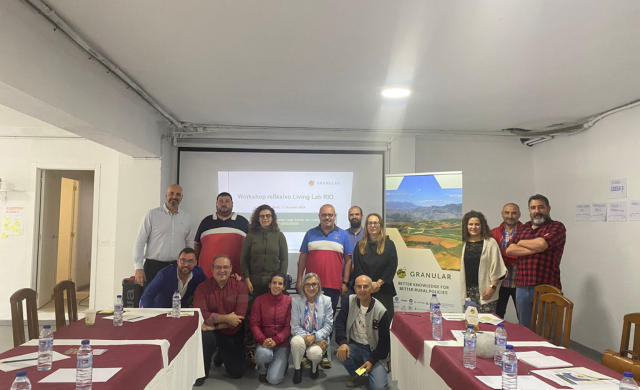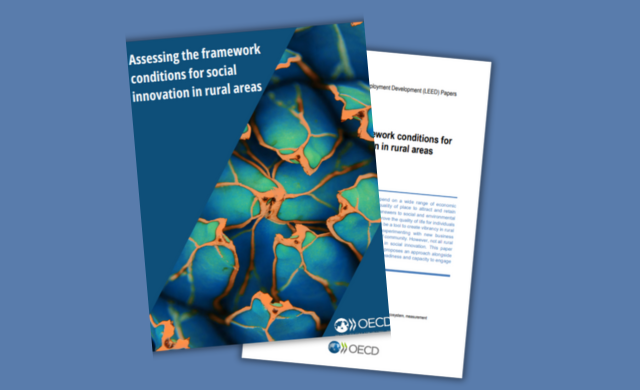Author: Serafin Pazos Vidal (AEIDL)
On 11 October GRANULAR presented the state of play of the project at the event We’re staying in rural areas: practices, policies and tools for thriving regions. This is part of the European Week of Regions and Cities (EWRC) the world largest gathering of local and regional decision-makers, practitioners and territorial thinkers, bringing 20.000 people to Brussels each October for its 21st edition.
Our event was organised by GRANULAR partner AEIDL – the European Association of Innovation in Local Development – and PARTENALIA, the European network of intermediate local authorities.
90 people from 15 countries attended, half of them from Local and Regional Authorities and particularly from Spain, Italy or France, where event partners Partenalia has many members. 8 EU officials also attended, as well as academics and other pan European organisations.
About 30% of EU regions are facing a shrinking workforce, a low share of higher education and a steady youth exodus. As recognised by the EU Commission (2023), these trends are more severe in rural Europe and contribute to widening territorial disparities. During this EU Year of Skills, this workshop presented current local good practices, policies, and tools to retain and attract talent in rural areas avoiding one-size-fits-all solutions.
Aurélie Kirsch, Project Manager IAMM Montpellier, coordinator of the GRANULAR project, summed up its state of play. Rural areas are very diverse, facing different dynamics challenges and drivers of population evolution. Indeed, many of the basic services these areas need and often lack are not captured in existing statistics. There is a lack of relevant data at the appropriate granularity to tailor place-based policies for retaining talents.
This is why GRANULAR (Giving Rural Actors Novel Data and Re Usable Tools to Lead Public Action in Rural Areas) aims to identify, develop and provide novel data and reusable tools to understand the characteristics, dynamics and drivers of rural areas and hence support place and evidence-based policy making.
Among the ongoing activities has been to catalogue the variety of potential datasets that can capture the local needs and eventually produce smart, innovative, open-source data collection methods. This, among other aims, involves characterising mobility patterns and accessibility to services, develop an analytical tool for rural actors to lead action, assessing the impact of policies on rural areas and communities.
GRANULAR will produce indicators and tools to guide decision-makers at both the local and EU levels, relevant to the different phases of the policy cycle. It was particularly welcome by the audience the fact that GRANULAR will produce a Rural Diversity Compass and a new pan-European methodology for Rural Proofing.
The representatives of the Partenalia political leadership, Juan Ramón Adsuara and Ángeles Pallarés presented initiatives from their respective provincial councils of Valencia and Castellón in Spain to address the lack of quality housing in rural areas which they consider one the main issues preventing local youth from staying and outsiders from settling in these areas. Provincial governments can support smaller municipalities in providing facilities such as co-working spaces to their constituents as well as ensuring basic public services.
Marta Marczis, President of AEIDL, chaired the event, highlighting the mission of AEIDL to advocate better EU policies to foster, sustainable, innovative and local development. In so doing we partner with local stakeholders from all over Europe, and indeed networks such as Partenalia.
In the debate that ensued with the audience a number of key messages came out: EU and national policies are still out of sync with the needs of territories facing demographic decline, there is the need for rural proofing existing and new EU policies and funds. Lastly, it is necessary to plan and effectively guarantee the provision of basic services in all areas.
The Commission is presently reviewing the launch of the EU Cohesion and Common Agricultural Policies 2021-2027, but also presenting the proposals for post 2027 and this seminar provided useful recommendations of the needs and gaps within the existing policy framework.
